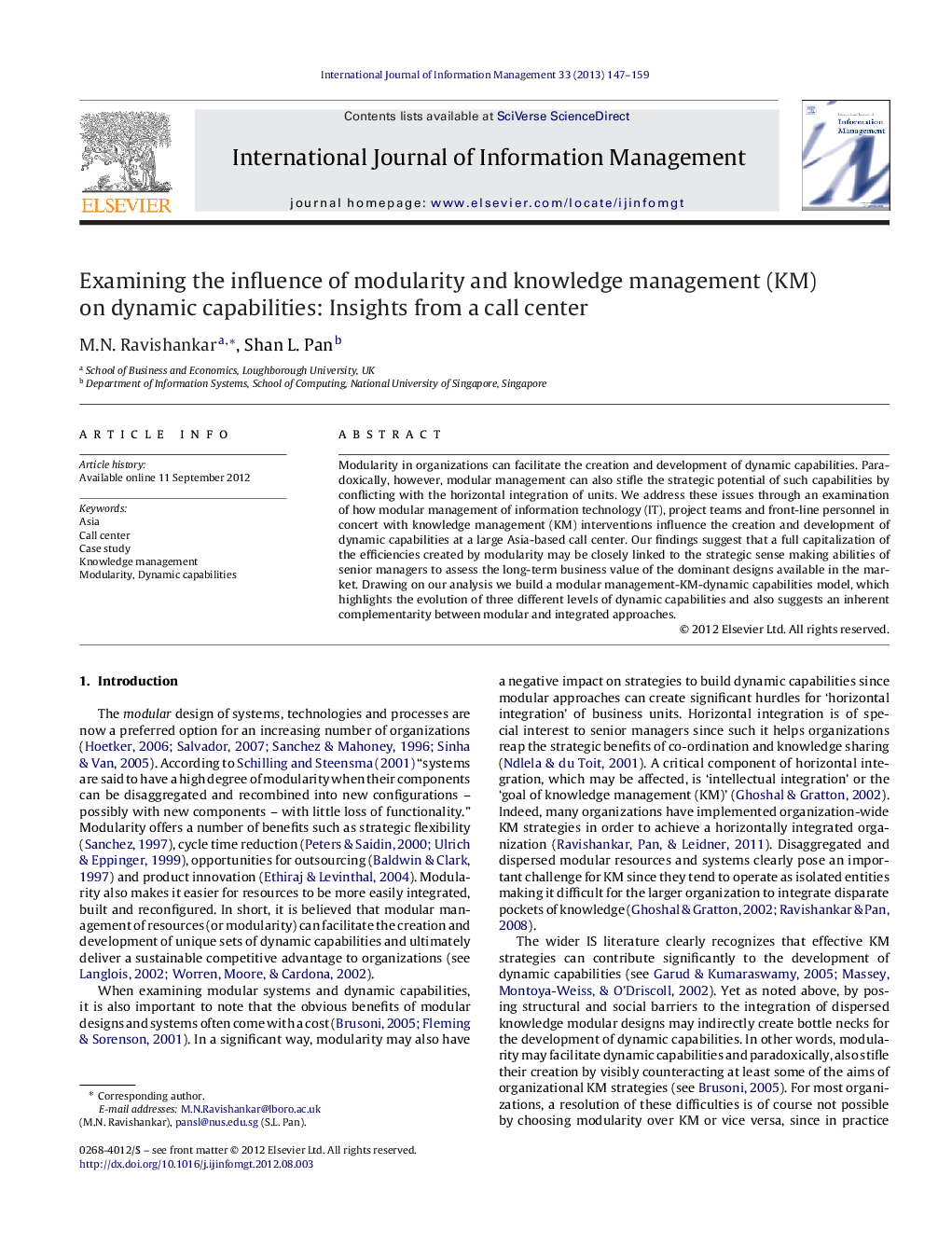| Article ID | Journal | Published Year | Pages | File Type |
|---|---|---|---|---|
| 1025879 | International Journal of Information Management | 2013 | 13 Pages |
Modularity in organizations can facilitate the creation and development of dynamic capabilities. Paradoxically, however, modular management can also stifle the strategic potential of such capabilities by conflicting with the horizontal integration of units. We address these issues through an examination of how modular management of information technology (IT), project teams and front-line personnel in concert with knowledge management (KM) interventions influence the creation and development of dynamic capabilities at a large Asia-based call center. Our findings suggest that a full capitalization of the efficiencies created by modularity may be closely linked to the strategic sense making abilities of senior managers to assess the long-term business value of the dominant designs available in the market. Drawing on our analysis we build a modular management-KM-dynamic capabilities model, which highlights the evolution of three different levels of dynamic capabilities and also suggests an inherent complementarity between modular and integrated approaches.
► A modular management-KM-dynamic capabilities model with three levels of dynamic capabilities. ► Highlights strategic sense-making abilities of senior managers. ► Demonstrates complementarity between modular and integrated approaches.
